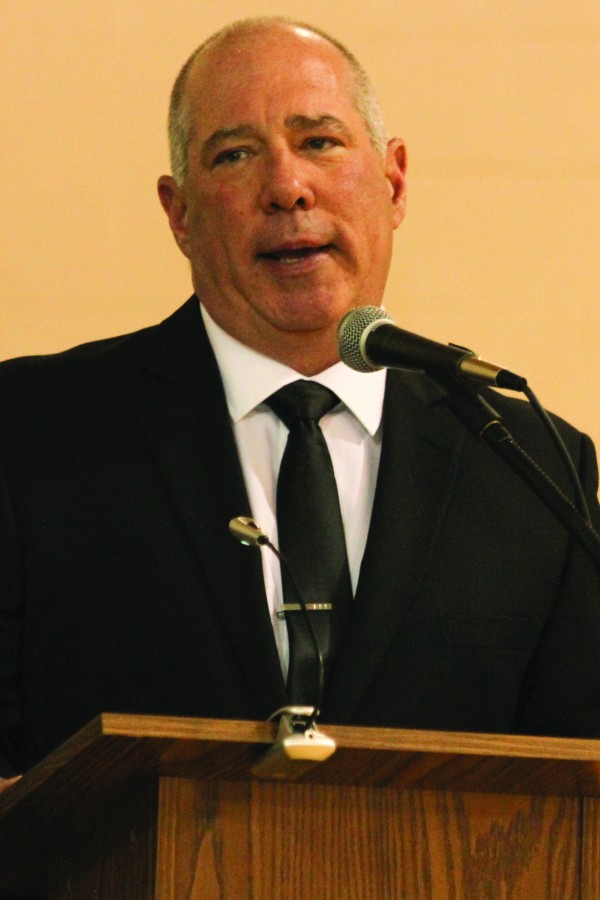AÂ spirited businessman with a soft heart has been improving lives of individuals with autism and their families since 2001.

- CEO Neil J. Pollack presides over a graduation ceremony at the Anderson Center for Autism in Dutchess County.
That year Neil J. Pollack became CEO at the Anderson Center for Autism in Staatsburg, then in desperate financial trouble. Pollack learned of the center”™s plight during an encounter with then 88-year-old Polly Gage, daughter of Dr. Victor Anderson, the psychiatrist who founded the center in 1924 in Dutchess County to aid children with special needs.
Although the founder”™s daughter felt the center beyond hope, Pollack rose to the challenge. ”I love running toward a fire like a first responder,” he says.
With the dramatic increase in births of children with autism, currently one in 68, a decision was made to dedicate the center”™s facilities exclusively to those with autism.
The cause of autism remains largely unknown, Pollack reports. The birth figures for autistic children are consistent worldwide and include considerably more boys than girls. The Centers for Disease Control reports an alarming annual increase in autism among children of 17 percent, Pollack adds.
Autism manifests itself in different forms, characterized by varying degrees of impairment in communications skills and social abilities, as well as repetitive behaviors ranging from mild to severe. “One milder form of the disorder is commonly known as Asperger”™s Syndrome,” the center executive explains. “Autism does not appear to be genetic. Only a very occasional family has more than one autistic child.
“Individuals may have trouble maintaining a conversation,” Pollack continues. “Some might seem to be talking at others instead of to them. A monologue may continue despite attempts by others to interject comments. There may be little or no eye contact. Although hearing is in normal range, they may be non responsive to verbal cues, as if deaf.”
While there is yet no known cure, applied behavior analysis and modalities like play, speech and arts therapies and other treatments, including prescribed medications, often help improve quality of life for patients at the Anderson Center. The center accommodates 124 resident students, 14 day students, 105 adults living in group homes, 104 adults attending day programs, and 150 individuals receiving a variety of community-based support services. Funds come from state agencies, grants and fundraising.
Serving their needs is a staff of 800, including professionals and caregivers. Pollack is proud that the center”™s policies have led to a dramatic decrease in staff turnover, from 37 percent in 2001 to the mid-teens today. Staff vacancy is down to nominal openings from 54 percent in 2001.
Anderson invented a pioneer compensation model called Learn & Earn to support caregivers, tying pay to college credits. From averaging 36 to 45 credits in 2008, the number is 56 today, “yielding fabulous performance results,” he adds.
Most students live in single rooms to give them privacy, but engage in activities that encourage social interaction, Pollack says. After the annual graduation, a small percentage of graduates return to their home communities. Many reside in Anderson community homes and attend day programs.
Although autism individuals will likely not enter the trades, Pollack feels pride when they are well enough educated to reliably perform repetitive jobs, some washing dishes or bussing tables in a restaurant.
It is not uncommon for a couple with a special needs child to divorce. Family relationships are often under considerable strain. “The supports we offer provide opportunities for both the child and family,” says Pollack.
Challenging Careers focuses on the exciting and unusual business lives of Hudson Valley residents. Comments or suggestions may be emailed to Catherine Portman-Laux at cplaux@optonline.net.
















